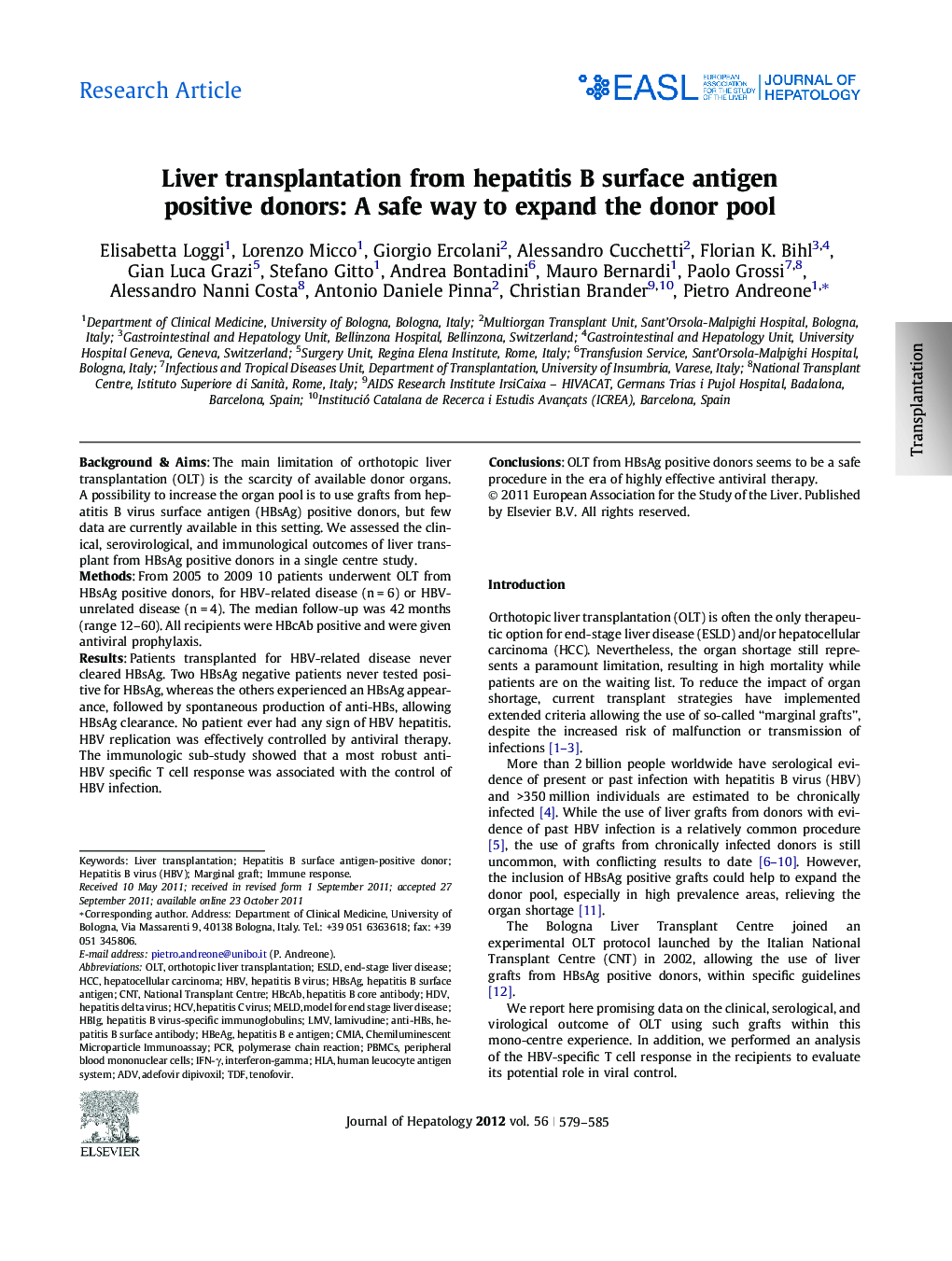| Article ID | Journal | Published Year | Pages | File Type |
|---|---|---|---|---|
| 6105392 | Journal of Hepatology | 2012 | 7 Pages |
Background & AimsThe main limitation of orthotopic liver transplantation (OLT) is the scarcity of available donor organs. A possibility to increase the organ pool is to use grafts from hepatitis B virus surface antigen (HBsAg) positive donors, but few data are currently available in this setting. We assessed the clinical, serovirological, and immunological outcomes of liver transplant from HBsAg positive donors in a single centre study.MethodsFrom 2005 to 2009 10 patients underwent OLT from HBsAg positive donors, for HBV-related disease (n = 6) or HBV-unrelated disease (n = 4). The median follow-up was 42 months (range 12-60). All recipients were HBcAb positive and were given antiviral prophylaxis.ResultsPatients transplanted for HBV-related disease never cleared HBsAg. Two HBsAg negative patients never tested positive for HBsAg, whereas the others experienced an HBsAg appearance, followed by spontaneous production of anti-HBs, allowing HBsAg clearance. No patient ever had any sign of HBV hepatitis. HBV replication was effectively controlled by antiviral therapy. The immunologic sub-study showed that a most robust anti-HBV specific T cell response was associated with the control of HBV infection.ConclusionsOLT from HBsAg positive donors seems to be a safe procedure in the era of highly effective antiviral therapy.
